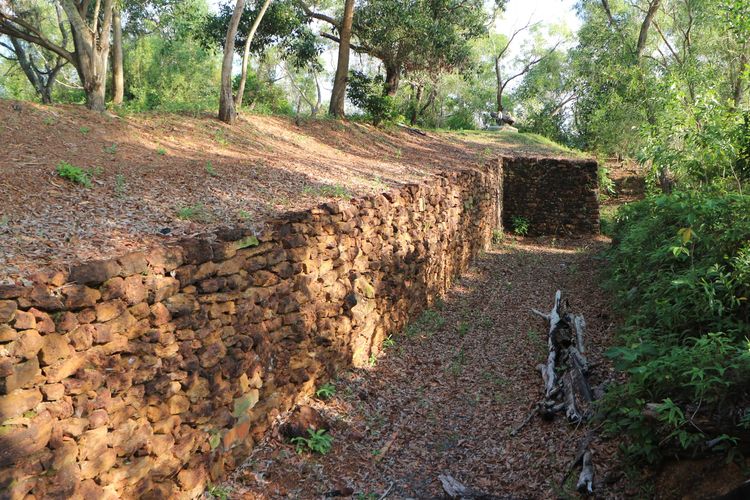
Benteng Bukit Ujung Pulau Penyengat: A Bastion of History on an Island of Culture
Benteng Bukit Ujung Pulau Penyengat: A Bastion of History on an Island of Culture
Introduction
Emerging from the heart of Pulau Penyengat, a small island off the coast of Tanjung Pinang, Kepulauan Riau, Indonesia, stands Benteng Bukit Ujung, a fortification steeped in history and cultural significance. This imposing structure, once a crucial defensive outpost, now serves as a captivating landmark, beckoning visitors to delve into the island’s rich heritage.
Historical Significance
The origins of Benteng Bukit Ujung can be traced back to the 18th century, when the Riau Sultanate reigned supreme. Sultan Abdulrahman Muazzam, the fourth sultan, envisioned the fort as a strategic stronghold to safeguard the island and its inhabitants from potential threats. Construction commenced in 1782, and over the ensuing years, the fort evolved into a formidable defensive complex.
Architectural Marvel
Benteng Bukit Ujung, also known as Benteng Kursi, showcases a unique architectural blend, reflecting the Riau Sultanate’s cultural influences. Its design incorporates elements of both Malay and European architecture, evident in its symmetrical layout, bastions, and tiered walls. The fort’s construction utilized a combination of earth, brick, and stone, creating a resilient structure that withstood the test of time.
Defensive Prowess
Benteng Bukit Ujung’s strategic positioning atop Bukit Kursi (Chair Hill) provided a commanding view of the surrounding waters, enabling defenders to spot approaching enemies from afar. The fort’s design incorporated multiple bastions, strategically placed gun emplacements, and a surrounding moat, further enhancing its defensive capabilities.
A Cultural Treasure
Beyond its military significance, Benteng Bukit Ujung holds immense cultural value. The fort’s presence served as a symbol of the Riau Sultanate’s power and influence, while its construction employed traditional techniques and materials, reflecting the region’s craftsmanship and resourcefulness.
Preserving the Legacy
Recognizing its historical and cultural significance, the Indonesian government designated Benteng Bukit Ujung as a cultural heritage site in 2014. This designation underscores the fort’s importance in preserving the region’s rich heritage and ensuring its legacy endures for future generations.
A Destination for Exploration
Today, Benteng Bukit Ujung stands as a captivating attraction, inviting visitors to explore its remnants and unravel the stories it holds within its weathered walls. The fort’s panoramic views of the surrounding landscape provide a breathtaking backdrop for historical exploration, while its well-preserved structures offer a glimpse into the architectural ingenuity of the past.
Conclusion
Benteng Bukit Ujung stands as a testament to the Riau Sultanate’s rich history and cultural heritage. Its imposing presence, architectural blend, and defensive prowess make it a remarkable landmark, while its designation as a cultural heritage site ensures its preservation for generations to come.
As visitors wander through its remnants, they embark on a journey through time, connecting with the stories and traditions that shaped this island’s past.





Leave your comment